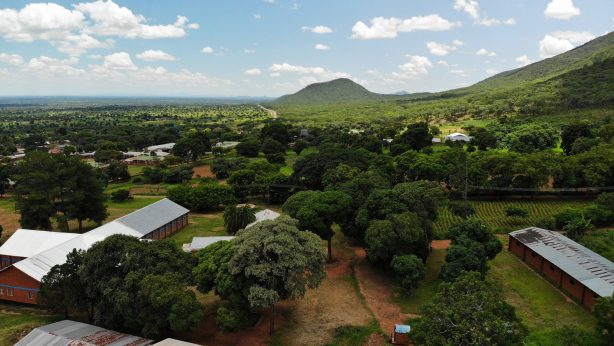Learn about Savings and Credit Cooperatives (SACCOs)
Greetings everyone. We at Empower Projects are always talking about “SACCOs”! So we thought we’d take some time to explain what they are and why we think they are so great! Community Savings and Credit Cooperatives (SACCOs) are financial institutions set up by people who want to solve a common problem for themselves and is managed by themselves. To date, SACCOs have found themselves commanding a large percentage of savings in the financial sector worldwide. They are democratic institutions, the engine room of many local social economies.
In Malawi the SACCO movement has been here since 1970’s. Due to growth and self-management style of SACCO’s, it has driven citizenry to trust the management of the SACCOs in not only safekeeping of their money but also to providing a good return. SACCO’s are a sure way to promote financial inclusion in poor communities who often cannot access the financial services offered by commercial banks. Be it due to a lack of physical access or a prohibitive requirements to take out a loan.
How do SACCO’s work?
A SACCO is made up of atleast 10 people and no maximum number of people who are shareholders. A person buys shares in order to become a member of a SACCO. The shares are supposed to be bought monthly depending on what people want. Apart from buying shares, members also save their money (savings) with the SACCO just like they would save with any other commercial bank. Once the members deposit their money in the SACCO, the management of the SACCO has a responsibility to ensure the members will get their money back, and should give interest being a reward for using the members’ money for their operations. While the sources of funds for the SACCO mainly include members’ savings, the uses of funds are the SACCOs’ investments. The investments include loans which take a major share and is the main driving motive for people in rural areas to join or start community SACCOs. In Nkhatabay, where we supported the establishment of the Timbiri SACCO, people identified lack of business capital as the main motive for starting a community SACCO.
Leadership of SACCOs
The laws that govern SACCOs around the world differ from country to country. In Malawi, the Financial Cooperatives Act (2011) and the Cooperatives Societies Act (2000), stipulates that a SACCO must have a Board of Directors made up of atleast 5 members. Three supervisory committee members, a Training and education committee and a remuneration committee. The board members are there to drive the SACCO and ensure that short-term actions needed to prepare the SACCO to meet its long-term objectives are well taken care of. Apart from the Board, daily operations of the SACCO are led by a Manager who has a management team comprising of an accountant, a member services officer, tellers and loan officers. The management size of a SACCO vary according to the size of the SACCO and the extent of their operations.
SACCOs in Malawi
The first SACCO in Malawi dates back to 1973. Initially 26 SACCOs came together to found the Union in 1980. Their savings amounted to only Malawian Kwacha (MK) 360,000 (about £700) with a similar amount in their loan portfolio. In Malawi all SACCOs must be members of a union of all financial cooperatives, the Malawi Union of Savings and Credit Cooperatives (MUSCCO) which is itself is the oldest cooperative union in Malawi. Set up in 1980, MUSCCO represents Savings and Credit Cooperatives (SACCOs) operating in the country. The mandate of MUSCCO is to provide services and support its members. Currently MUSCCO has 46 affiliated SACCOs whose total assets amount to around 3.6 billion Kwacha (around 11 million US$ or about £7.2million) and their loan portfolio is over 2.4 billion Kwacha (more than 7 million US$ or £4.8million). SACCOs in Malawi were promoted in the 1970s by the government, the Catholic Church and the donor community . This development was in contrast to what happened to agricultural cooperatives at that time, which were de-registered and replaced by national authorities who controlled the agricultural sector
Bank Manager Tawina speaks to the media at the launch of the Timibri SACCO in Jan 2016.
Our work with SACCOs at Empower Projects
On the 14th of January 2016, EMPOWER MALAWI launched its second financial cooperative in Malawi- the Timbiri Community Sacco. Community members from the surrounding areas of Timbiri Sacco, now have an opportunity to save their money with a legal financial institution which is basically owned by themselves. Imagine you owning a bank, setting your own bylaws for loans and savings? During the launch function the Board Chair of Timbiri Community SACCO intimated that ‘Timbiri SACCO will bring all the financial services that people can seek at a commercial bank right within the community.’
As our mission is to enable community self-reliance, we are committed to working in solidarity with communities to build capacity to self-manage development. Cooperatives are a perfect model to enable community members to self-organise and work towards common objectives. To date, we have supported the establishment of 2 financial cooperatives in Malawi, Timbiri and Kapita.
To learn more how you can support establishment of new SACCOs and enable disadvantaged communities to achieve self-reliance in Malawi please contact us at info@empowerprojects.org or empowermw@empowerprojects.org.




